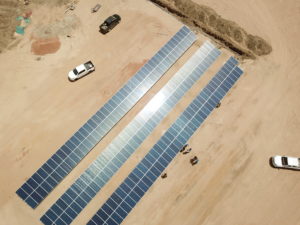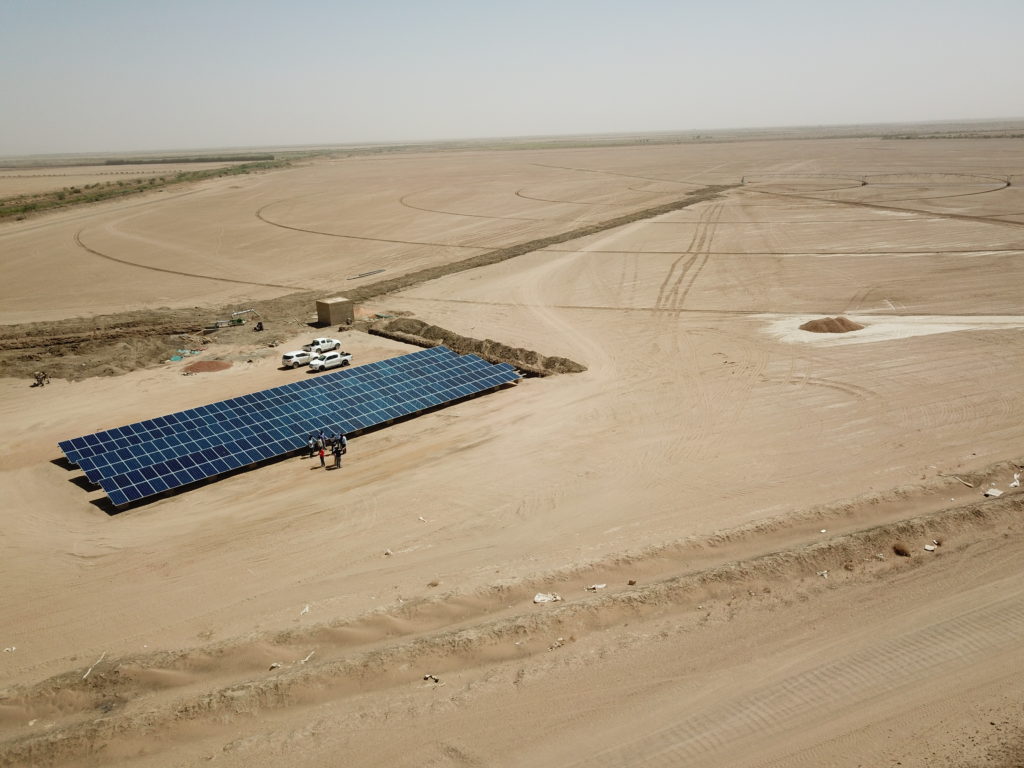São Paulo – The Brazilian branch of Valmont Solar Solutions developed a solar-powered irrigation equipment that are now operating in Sudan. The machine has been active since last April in a farm by company Zadna International Investment based in the northern region of the Arab African country.
Last year, manufacturer Valmont acquired the Brazilian-based firm Solbras, which brought along its expertise in solar power to the proejct. Professionals such as Fábio Mucin, a partner of the former Solbras and the operations director of Valmont Solar Solutions, came up with the equipment. “The challenges of this project are that Sudan is a very arid country that is very dependent on the Nile River. It’s also a place that often experience power shortages,” Mucin explained.

Therefore, the team had to think on a project that would use just solar power. To get an idea, most systems are on-grid. In Brazil, solar power is usually connected to the power grid. This allows that, in moments of lower sunlight, the power grid helps keep the equipment working.
However, the Sudanese had requested an off-grid system. “They wanted off-grid systems because there was no grid where they wanted to carry out the irrigation. They asked us not to use any diesel or battery complement, as it’s expensive and easily stolen,” he explained.
The Sudan’s project also required power. Just pumping water would require 45 of the 85 kilowatts generated by the plant that is connected to the device. With the requirements in their hands, the Brazilian team got to work in January 2020 and completed the project within six months. But before going to the Arab country, a pilot project had to get done in Brazil.
They tested it and met their goals in a Brazilian farm. “We carried out all tests and checked the irrigation and management standards. We had to design the system to meet the minimum standards of irrigation. In Sudan, eight hours of irrigation are required during summer and seven during winter. And we managed to resize the system so that it could irrigate during this period,” Mucin detailed.

The Sudan-based farm grows crops such as alfafa. The flat terrain allows for a wide crop. Therefore, the irrigation equipment also had to be large. The solar plant itself doesn’t take up much space, as it’s around 600 meters square, Mucin explained, but the irrigation pivot can irrigate an area up to 28 hectares.
After some drawbacks, the Brazilian equipment landed in Sudan, and the Brazilian team joined engineers from other branches of Valmont to get the project going. “The final phase had to be very quick as we needed to get everything working before Ramadan. We were successful, and now the first harvest should be going on, so we’ll be able to map it out and see how to further improve it,” the Brazilian explained.
Mucin believes the solar-powered irrigation system could potentially reach other producing countries and even be used in Brazil. “We’re going global. Valmont has operations in over 100 countries, and the company is assigning a great deal of importance to ESG. This business development in sustainable energies is a great priority. It’s a business that will grow fast,” he finished.
Translated by Guilherme Miranda




